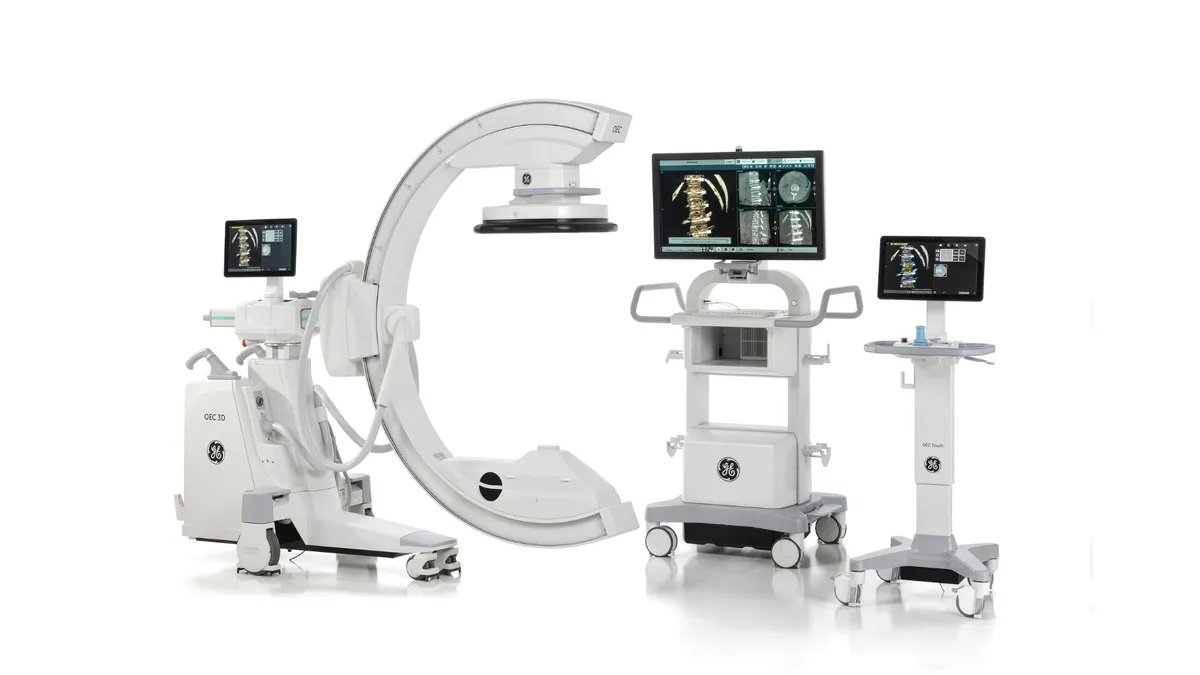Dive Brief:
- GE HealthCare faces “competition from all angles,” and mature end markets leave limited room for accelerated growth, according to analysts at BTIG.
- Since spinning out from its parent company late last year, shares of GE HealthCare have risen 34%, prompting the analysts to conclude the medtech company is “fairly valued.” The conclusion also led them to initiate their coverage of GE HealthCare at a “neutral” rating.
- The rating reflects both the strengths that come from having products that are “at the center of many care pathways” and the expectations that the company needs to show it can thrive as a standalone company to justify a higher valuation, the analysts said.
Dive Insight:
GE HealthCare’s share price has risen from $60 in mid-December to more than $80 today, an increase that the BTIG analysts said brings the stock “in line with large-cap peers with better growth profiles.” The question of how fast the company will grow as an independent business is at the heart of the analysis of the strengths and weaknesses that informed the neutral rating.
Some of the strengths and weaknesses are intertwined. The analysts list the strength of GE HealthCare in imaging, ultrasound, patient monitoring and pharmaceutical diagnostics as positives, noting that aging populations, rising chronic disease burden and the shift to minimally invasive procedures are long-term trends that will drive growth of the product portfolio.
Still, the analysts see GE HealthCare’s leading position in many markets as a cap on growth. As the company’s products are already dominant, it is “unlikely that share would rapidly accelerate in GE HealthCare's favor,” the analysts wrote.
In fact, the team at BTIG see that it’s “much more probable that other players will chip away at GE HealthCare's share.”
The analysts identified multiple companies that are trying to take some of GE HealthCare’s market share, noting that it doesn’t “have just one or two major competitors” but rather faces “competition across a variety of business lines, from both large multinational peers, such as Siemens Healthineers and Philips Healthcare, to many smaller peers within specific subsegments.”
BTIG lists 20 companies as competitors to GE HealthCare. The list features regional firms as well as Shenzhen Mindray Bio-Medical Electronics and Shanghai United Imaging Healthcare that are potential threats to the company in China.
GE HealthCare’s ability to fend off the competitors will rest, in part, on how well it can “develop more integrated solutions along care pathways that increasingly allow clinicians and patients to make more informed decisions around diagnosis and treatment,” the analysts wrote.
Creating integrated solutions, something that the analysts think spinning out will facilitate, could help GE HealthCare retain customers even as competitors launch products to rival specific parts of the portfolio, they added.
The company has worked to add to its capabilities since splitting from its parent company, striking deals to buy IMACTIS and Caption Health, forming a joint venture in China and reportedly entering into talks to buy two Medtronic units valued at $8 billion.












